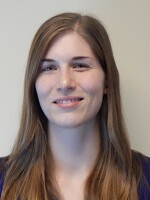Despite the increased attention autism has received, gaps in therapy remain. UW-Milwaukee researchers are helping to fill some of those gaps for children and teens struggling with physical challenges connected to their nonverbal learning disabilities.
Victoria Moerchen, an associate professor of kinesiology and physical therapy in UWM’s College of Health Sciences and instructor Margaret Dietrich have launched the Coordination Clinic for Adolescents with Autism.The clinic pairs patients with autism with physical therapy students. The students then create custom plans to improve various physical capabilities.
Moerchen decided to form the clinic after receiving a request from parents who couldn't find this type of resource for their child. Her background is in teaching pediatrics and knew that there was a need for experiential learning for students in UWM's doctorate physical therapy program.
"What I was looking for was some sort of experience that really came from the community...that would allow the students to be immersed in working with a a child and a family," Moerchen says.
Autism is primarily associated with varying degrees of social communication abilities, but Margaret Dietrich suspects these children are also experiencing barriers that limit participation in recreational activities in their schools and with their families. and they may not be developing coordination skills at the same rate as children not on the spectrum.
"While autism spectrum disorder is not primarily a motor-based disorder, we find that children and adolescents with autism do have motor delays and may have some atypical patterns of movement," she explains.
Since every child's experience is different, the end goal of the clinic is specific to each patient involved. Participants' ages range from eight years old to their early twenties, so their goals vary accordingly. Moerchen points out that goals can range from building the skills needed to run on a school cross country team to practicing yoga with their family to building mobility to be able to physically qualify for a job.
Twice a week, the students and families work together in a problem-based learning approach. Moerchen says this allows the students to view clinical work as an opportunity to see the patient "as a whole person." Just as it is impactful for the students, "in the end, the family gets a product that I don't believe you can get from just a clinic visit," she says. "There's just no way to have a financial model in a clinic that would allow for what we can do running this clinic in a teaching model."
The Coordination Clinic is in its seventh year, and each patient that has success continues to open new pathways for them and their families. "These families are not new to the diagnosis, they are not new to resources, but they've been in the system for a while and I think sometimes they're just tired," says Moerchen. "In some ways, participating in this clinic because it's so different, sort of helps them through some of that fatigue and gives them a little bit of energy again."
If you would like more information about the Coordination Clinic for Adolescents with Autism or would like to enroll your child in the program, contact Victoria Moerchen at moerchev@uwm.edu.







